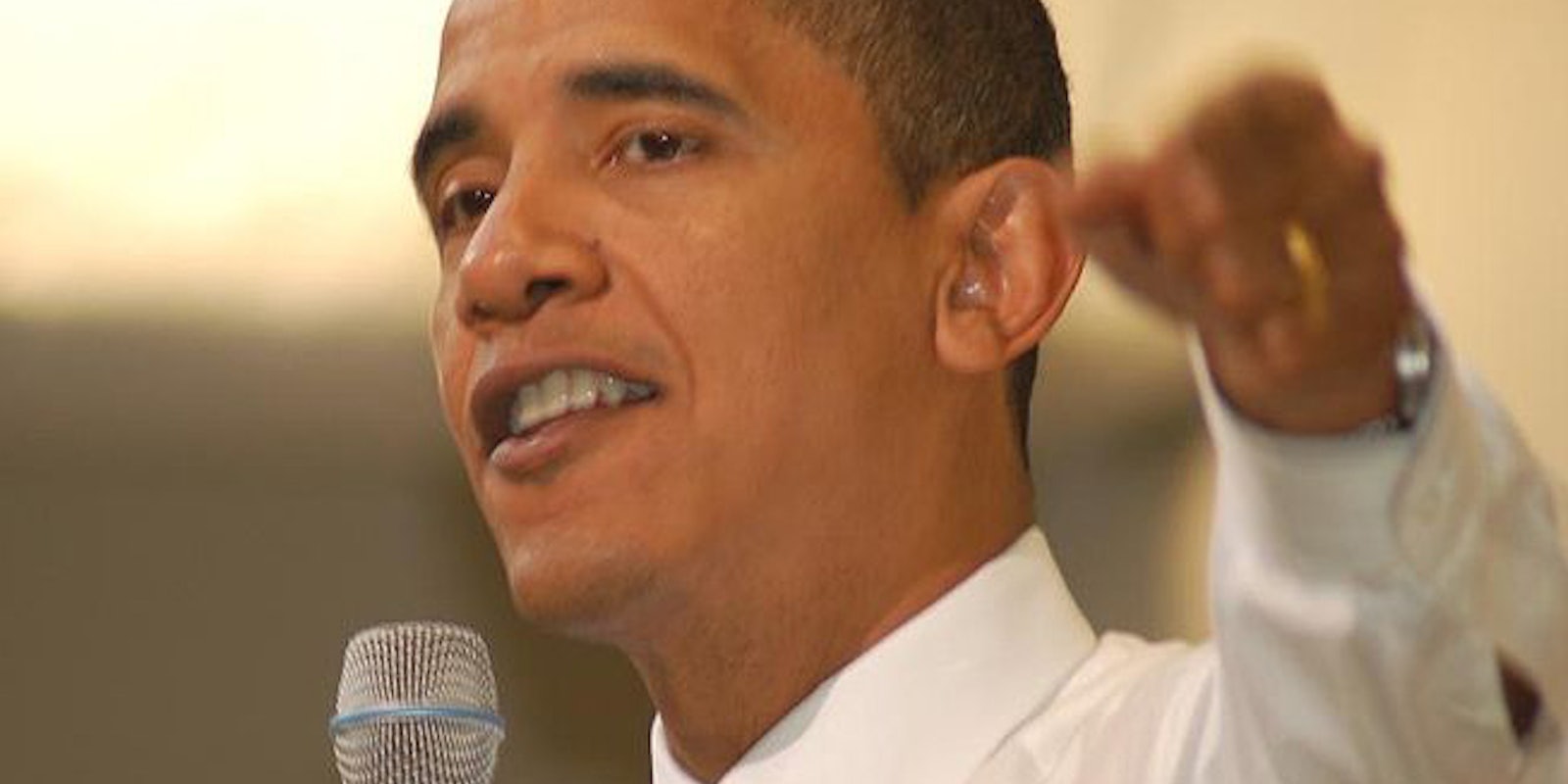When it comes to alleged cyberattacks on the U.S. and politicians’ calls for drastically improved cybersecurity, President Obama is walking a thin line in the middle.
In an interview with ABC News’s George Stephanopoulos, Obama said that he believed that “some” hacking attacks on the country are “state sponsored.”
Obama didn’t name which state was responsible for such attacks, but Stephanopoulos was clearly referencing China, and the fact that cybersecurity firm Mandiant recently identified a particular Chinese military building as the direct source of attacks on the U.S.
Some politicians, like Congressman Mike Rogers (R-Mich.), have called the alleged Chinese attacks evidence that “we are in a cyber war.” Rogers, in particular, has used such rhetoric to push the Cyber Intelligence Security Protection Act (CISPA) to fight back. The bill is widely derided by privacy advocates, though, as it would make it easier for corporations to share users’ private information with the federal government.
Obama refused to describe the attacks in military terms, though, noting that “you always have to be careful of war analogies.”
“There’s a big difference between them engaging in cyber espionage or cyber attacks and, obviously, a hot war,” he added. “What is absolutely true is that we have seen a steady ramping up of cyber security threats.”
Obama has long toed the line between only supporting cybersecurity laws that would protect user privacy and using at least some of the information-sharing provisions in CISPA that would help the federal government work with corporations to stop hackers. He made such a compromise in his own executive order on cybersecurity issued in February, and has recently avoided reiterating his promise to veto CISPA—which Rogers hopes is a sign Obama is warming to the bill.
However, Obama might have to be explicit about CISPA sooner than he realized. A White House petition to “Stop CISPA” has reached the 100,000 signature threshold. While this doesn’t actually force any government action, it does mean Obama or his advisors are now required to issue a statement on the subject.
Photo via Wikimedia Commons


